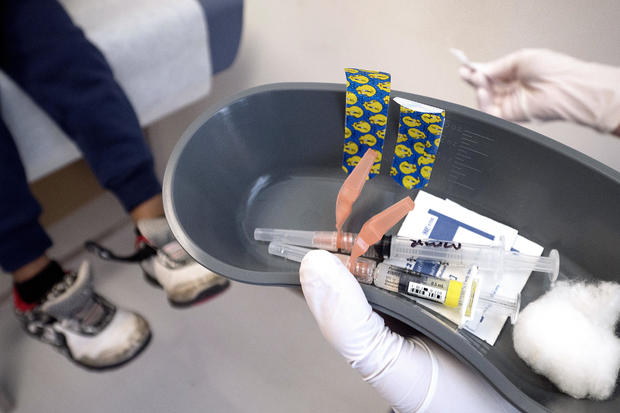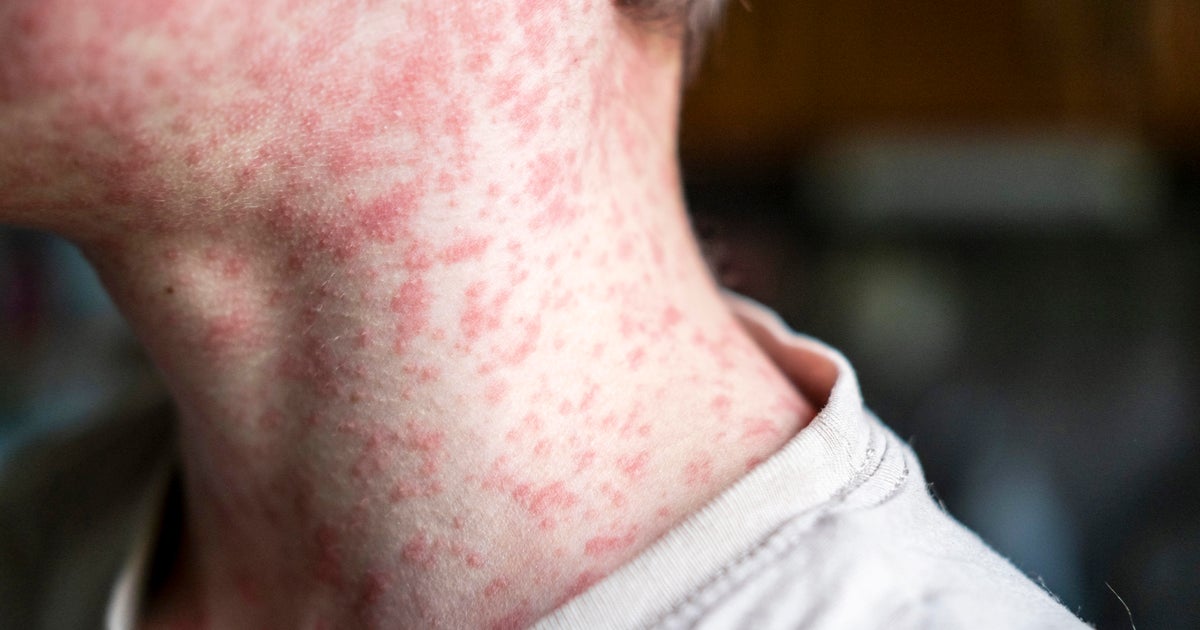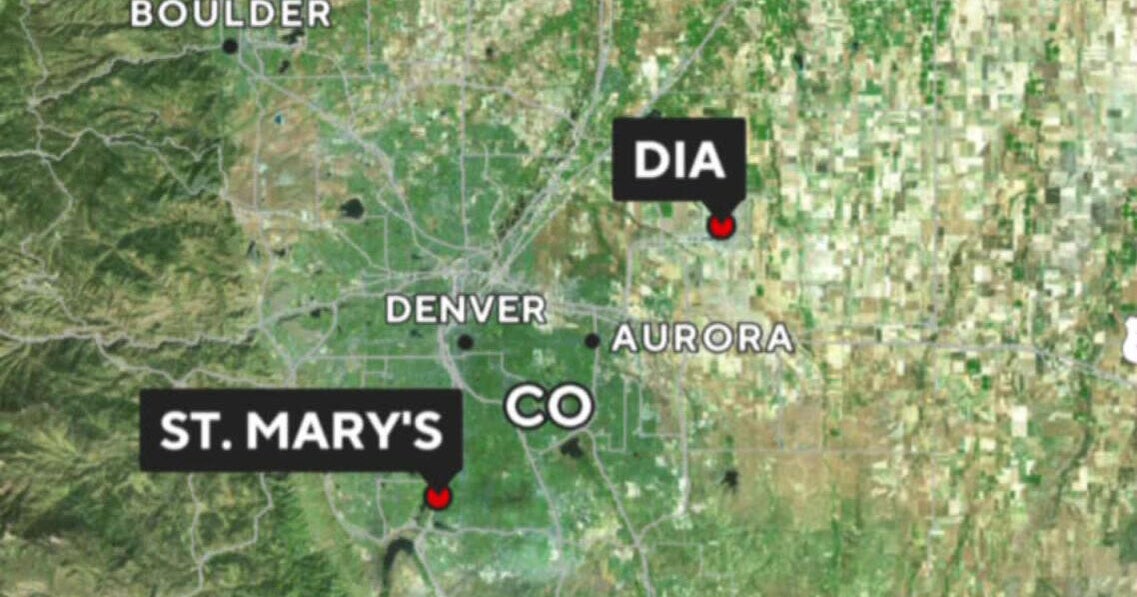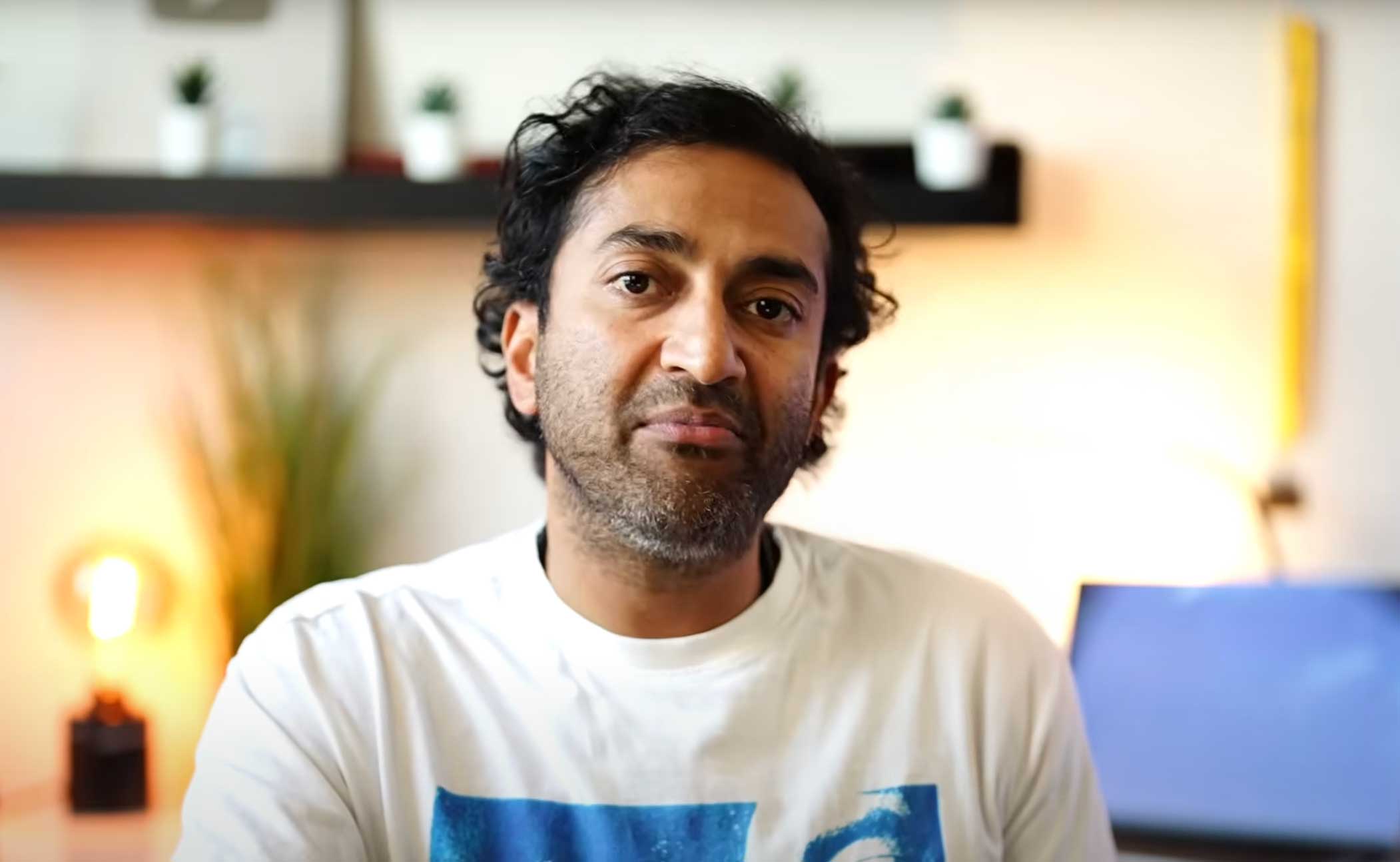Childhood vaccination rates have dropped during the pandemic, leaving kids at risk
Routine childhood vaccinations have sharply declined across the U.S. this year, which health experts fear could lead to an outbreak of other diseases amid the coronavirus pandemic.
"Associated with the fears that first arose in March and April and May, there was a dramatic decline in the number of parents who brought their children to doctors offices for vaccinations," said Dr. Paul Offit, an immunology expert and director of the Vaccine Education Center at the Children's Hospital of Philadelphia (CHOP)."They didn't want to go into an area where there were large numbers of children gathered together in one spot."
New data from Blue Cross Blue Shield shows that up to 9 million children across the nation will have likely missed routine vaccinations by the end of this year. That's 26% fewer vaccinations than there were in 2019. According to the report, 40% of parents said their child had missed a vaccination this year because of the coronavirus pandemic.
"Over the summer, the immunization rate started to go back up again, but I have no doubt that with our current mode of frankly locking down there will likely be slump again in immunization rates," Offit said.
This includes the vaccine for measles, a sometimes fatal illness which has been on the rise in recent years. The World Health Organization says over 200,000 people died from measles in 2019 alone, and the death rate from the disease climbed by 50% between 2016 and 2019.
"Measles is a killer," Offit said. "I think people don't realize how sick measles can make you."
He explained that measles is the most contagious of vaccine-preventable diseases. And it is 10 times more contagious than COVID-19. The contagiousness index of COVID-19 is about 2, while the contagiousness index of measles is closer to 20. The index refers to the average number of people an infected person is likely to spread the virus to.
"Measles is highly contagious," Offit said. "The minute you start to have any kind of breakdown or fraying of immunity, measles is always the one that comes back. And that's what everybody is scared of now. It's November heading into December, it's measles time."
He warned that polio and whooping cough are two other preventable diseases to look out for amid the decline in vaccinations.
"When babies don't get a whooping cough vaccine, whooping cough for them can be fatal," he said.
Dr. Katie Lockwood, a pediatrician at CHOP, said she's heard parents say that their children don't need to be vaccinated since they have been social distancing during the pandemic. Her response is, people have been coming into contact with humans more than they might think.
"Everyone's bubble of who they are interacting with might feel small but it's not small enough that we're preventing COVID," Lockwood said. "And with that, I know kids are still vulnerable to these other diseases."
Unlike some hospitals, CHOP patients have pretty high vaccination rates. Lockwood said they accomplished this through holding town halls to answer parents' concerns, reaching out to families directly and by sending out information on the safety precautions they are taking to prevent the spread of COVID-19 within the doctor's office.
Lockwood also suggested that vaccination hubs could encourage people to get the vaccines they need. Her office recently created a regional hub for the flu vaccine.
"At times when our offices are less busy seeing our patient care, then we bring in all of these other patients just for flu visits," she said. "And they're in and out very quickly and so they don't have a lot of contact time in terms of being worried about COVID."
She emphasized that it is important to get kids vaccinated now, before the pandemic ends, so that when it does end, people are protected from preventable diseases that could turn deadly.
Dr. Offit agreed, noting: "Let your guard drop and measles will come raging back."




